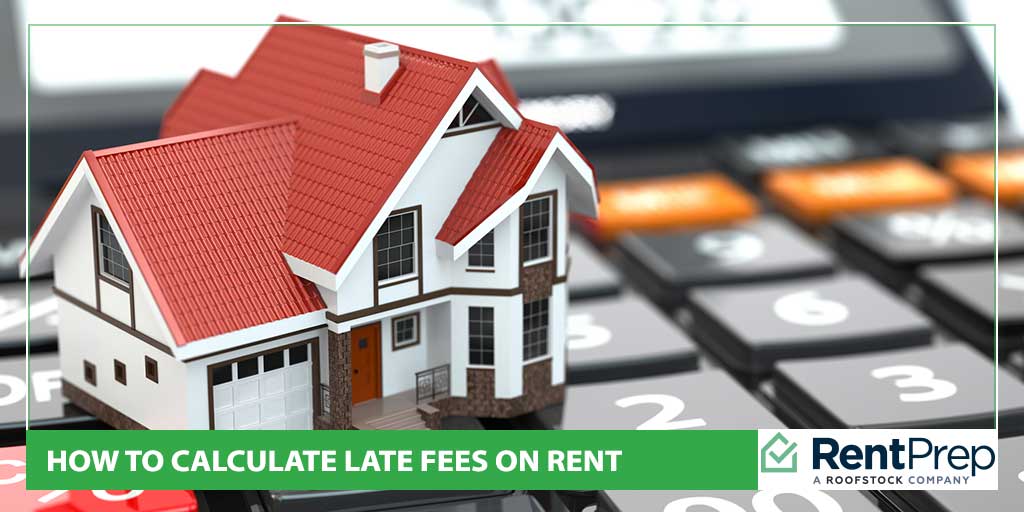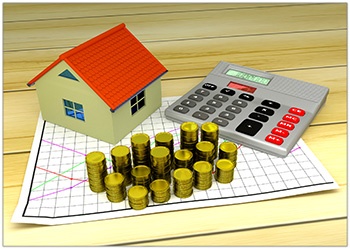
For your rental business to run successfully, you need your tenants to pay rent in full and on time each month. When tenants start to fall behind, landlords need to know how to calculate late fees on rent, charge them appropriately, and protect their business from major losses.
Are you aware of how to use a late rent calculator or what the rules are for applying late fees on rent in your area? There are a few ways you can run into trouble if you are handling late fees the wrong way. From losing money to getting in trouble in court, issues can arise quickly if you aren’t paying attention.
Learning what is the average late fee for rent in your area, applying late fees regularly, and ensuring you are doing so legally will do great things for your rental business. Start the process today by learning more in our late fee guide.
A Table Of Contents On How To Calculate Late Fees On Rent
- What Are Rental Late Fees?
- Should You Charge Late Fees On Rent?
- How To Calculate Late Fees On Rent
- All About Grace Periods
- When To Charge The Late Fee
- Rent Late Fee FAQs
What Are Rental Late Fees?
 Rental late fees are fees applied to the tenant account whenever the rent is not paid in full by the due date. The fee is meant to cover the financial inconvenience caused by the delay while also compensating the landlord or property manager for the time spent tracking down the rent.
Rental late fees are fees applied to the tenant account whenever the rent is not paid in full by the due date. The fee is meant to cover the financial inconvenience caused by the delay while also compensating the landlord or property manager for the time spent tracking down the rent.
Typically, rent is due on the first of the month for month-to-month or year-long leases. If the rent is not paid by the first, landlords will usually charge the late fee on the second. In some cases, grace periods of three to five days will delay when the late fee gets charged.
Are Rental Late Fees Legal?
Yes; late fees are legal to charge as long as a few conditions are met:
- The late fees are outlined and agreed upon in the rental lease.
- The late fees follow local laws.
- The late fees follow state laws.
If the late fees do not meet any of these three conditions, they may be challenged in court by your tenant. Make sure you are carefully following all landlord-tenant rules in your area and that you put everything in writing in the lease along the way.
Should You Charge Late Fees On Rent?
Some new landlords may feel hesitant about charging late fees. If you are unsure about charging late fees, you need to take a moment to understand the value that late fees actually bring to your rental business.
Helps To Cover Your Losses
The base reason for charging a late fee is to compensate you for the time, work, and risk that you face when a tenant doesn’t pay rent on time. While late fees are unlikely to generate a lot of extra income for your business, it will offset the cost of your time spent on collecting the late rent.
Encourages On-Time Payments
Another reason late fees are helpful is that they can encourage tenants who pay late rent to avoid repeating the same mistake. If a tenant pays late, they will owe more money than if they paid on time. This back-and-forth can encourage on-time payments.
Creates Consequences
Even if a tenant has never paid late rent, they will be aware that a late fee exists. The existence of the late fee creates consequences when it comes to paying rent on time.
The risk of facing consequences will help to keep payments on time. When tenants know you do not make exceptions to late fees, they will be motivated to avoid them.
How To Calculate Late Fees On Rent
Now that you know more about your right to charge a late fee, it’s time to figure out how to calculate what you should be charging as a late fee. Remember that your late fee might be subject to local or state laws; those rules always take priority when calculating an appropriate fee.
Late Rent Calculator: Types Of Late Fee Calculations
There are a few different techniques that are used to calculate late fees.
Daily Method
Some landlords set the late fee to increase by the day. This means the tenant will owe a specific amount of money for each day the rent payment is late, with a reasonable maximum fee to be charged.
For example, a landlord might set the late fee at $5 per day with a maximum charge of $55 dollars. If a tenant pays rent two days late, they will owe $10. If they are 11 days late, they will owe the maximum amount of $55 dollars.
The maximum cap is going to be required to adhere by state and local maximums on late fees. If you meet the cap, it is likely that you will have already sent out the necessary rent notices to collect rent or move forward with an eviction.
Flat Fee Method
Most landlords choose to use the flat fee method. This means they set a specific amount that is automatically due as soon as the rent is late or the grace period has ended. Fees can range in amounts, but the amount must be set within legal limits.
This method can be useful for landlords because it is easy to track, but it can always be frustrating for tenants. If a tenant pays one day late, they owe the same amount as if they were 10 days late. This can reduce the incentive to pay quickly, which is why some landlords stick to the daily method.
When setting a flat fee, the fee usually ranges from $30 to $100. You can set the exact amount by equating it to around 5% of the monthly rental rate and then rounding it to an easy number.
Percentage Fee Method
Finally, some landlords choose to strictly rely on the percentage method. Most late fees total around 5 or 6 percent of the monthly rent. Many states have restrictions on the maximum amount allowed to be charged for late fees, and this is usually based on a specific percentage as well.
Late Fee Goals
Now that you know the different ways you can set your late fee, you need to remember what your goals are in collecting a late fee. You want to ensure the amount collected fits the following items:
- Covers the time you spend collecting rent
- Compensates you for the inconvenience
- Motivates the renter to avoid paying it again
- Does not cause the tenant to fall even more behind on their payments by being too high
All About Grace Periods

You have probably heard about grace periods before, but do you understand how grace periods and late fees are intertwined with each other?
A grace period is a period of time that a tenant has to pay late rent before they legally can be charged a late fee. In some states, the grace periods are set by law. In others, grace periods are not required, but a landlord can choose to include one in the lease anyways.
The original idea behind grace periods was to allow time for money to transfer. While there are many forms of money transfer today that happen instantaneously, there are some methods that have a three-to-five day waiting period. Grace periods help tenants plan around that delay.
Many landlords choose to include a five day grace period in their lease. Even if your regional laws do not require it, you may want to consider adding this grace period.
Grace periods have a number of benefits:
- Lowers the frequency of chasing down rent or dealing with bounced checks.
- Reduces stress on tenants and creates a better landlord-tenant relationship.
- Gives leeway in unexpected situations when a tenant cannot pay on time.
- Reduces the chances of a tenant asking for the late fee to be waived since a grace period was already given.
When To Charge The Late Fee
When exactly should the late fee be charged to your tenant? Does the charge happen as soon as the rent is overdue, or is it charged later?
This will depend on whether or not you have a grace period in place in your lease.
Let’s say your rent due date is the first of the month. Here is how the late fee should be charged to tenants if the rent is late:
- No grace period: Late fee is charged on the second.
- Three-day grace period: Late fee is charged on the fourth.
- Five-day grace period: Late fee is charged on the sixth.
As you can see, the grace period will affect exactly when the late fee will go into effect. This should be clearly explained in the lease so the tenant also understands when the fee will affect them.
If The Tenant Doesn’t Pay After Late Fee
What happens if the tenant still doesn’t pay rent after you notify them about the overdue rent and the late fee?
Ultimately, it will be time to pursue an eviction. When rent is late and the tenant makes no effort to pay it or communicate about the delay with you, it is well within your rights to begin the eviction process.
It is up to you whether you want to pursue an eviction after one missed rent payment. If the tenant exhibits a pattern, however, you should move towards eviction as soon as possible to prevent any serious loss of income.
Rent Late Fee FAQs
How Do Rent Late Fees Work?
Rent late fees are fees that are charged in addition to the monthly rent payment when the rent is not paid on time. The fees act as a way to pay you, the landlord, back for any inconveniences caused by the late rent. Additionally, they function as a way to encourage tenants to avoid paying rent late again in the future.
What Is The Standard Late Fee For Rent? What Is The Average Late Fee?
There is not one set late rent fee, but most landlords charge between $50 and $100 for late rent, depending on the monthly rent amount.
How Are Late Fees Calculated?
There are a few different ways that you can determine how much your late fee should be. Most landlords calculate the fee based on a specific percentage of the monthly rent, between 4 and 6 percent.
What Is The Highest Late Fee Allowed By Law?
You must follow all local and state laws when setting a late fee. This includes implementing a required grace period before a late fee can be charged for late rent payments. Many states have a limit on how much rent can be charged.
The limit set by states is usually a percentage-based number alongside a maximum amount to cap off potential payments. These are a few examples of late fee rules in various states:
- Delaware: Late fee can be up to 5% of the rent; must give a 5-day grace period.
- Iowa: Late fee cannot be more than $12 per day or $60 maximum for monthly rent lower than $700 and $20 per day or $100 maximum for monthly rent over $700.
- District of Columbia: Late fee cannot be more than 5% and there must be a five-day grace period.
Even states that do not have a specific late fee in place require that the late fee be considered to be reasonable. As a landlord, it can be hard to know what this means. To keep your rent fee reasonable and legal, it is best to keep the amount below 8% of the monthly rent at an absolute maximum.
Stay On Top Of Late Fees
Regardless of which method you use to set your late fees or how long of a grace period you decide to include in your lease agreements, make sure you stay on top of late fees at all times. While the amount might not change your business immediately, frequent late fees and missed rent payments will add up over time.
Enforce late fees, and enforce them regularly. Setting a standard for on-time payments will create a better business environment for your rental properties.

